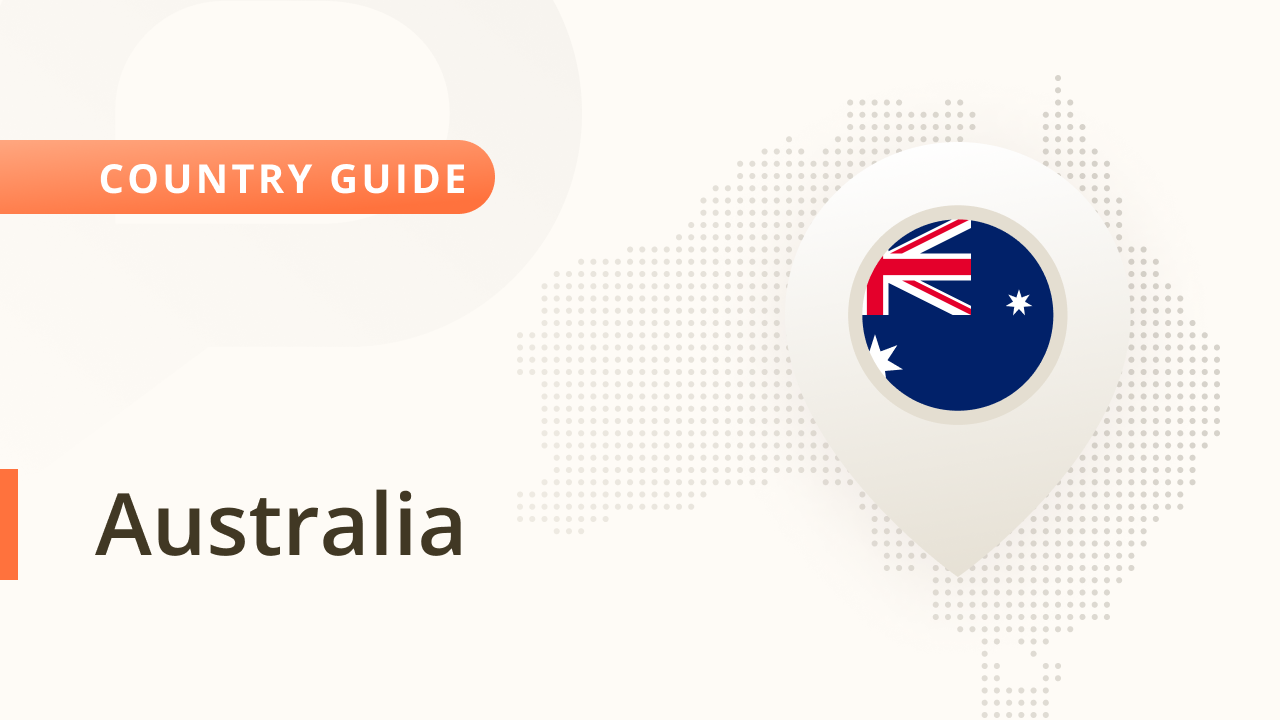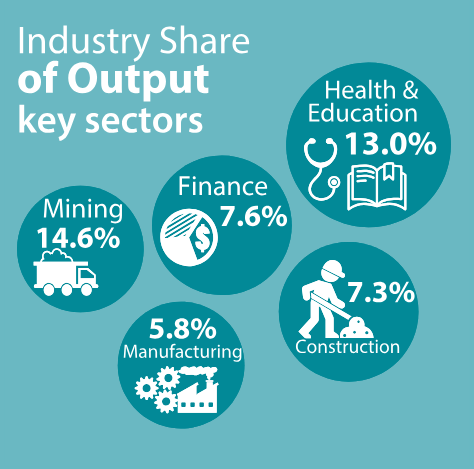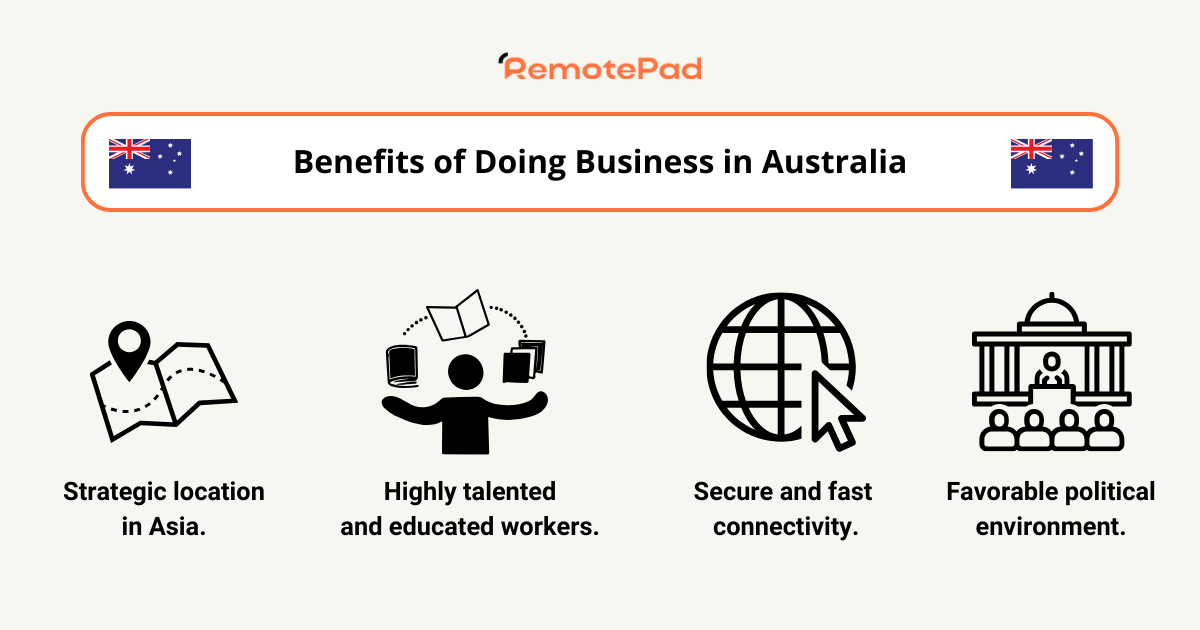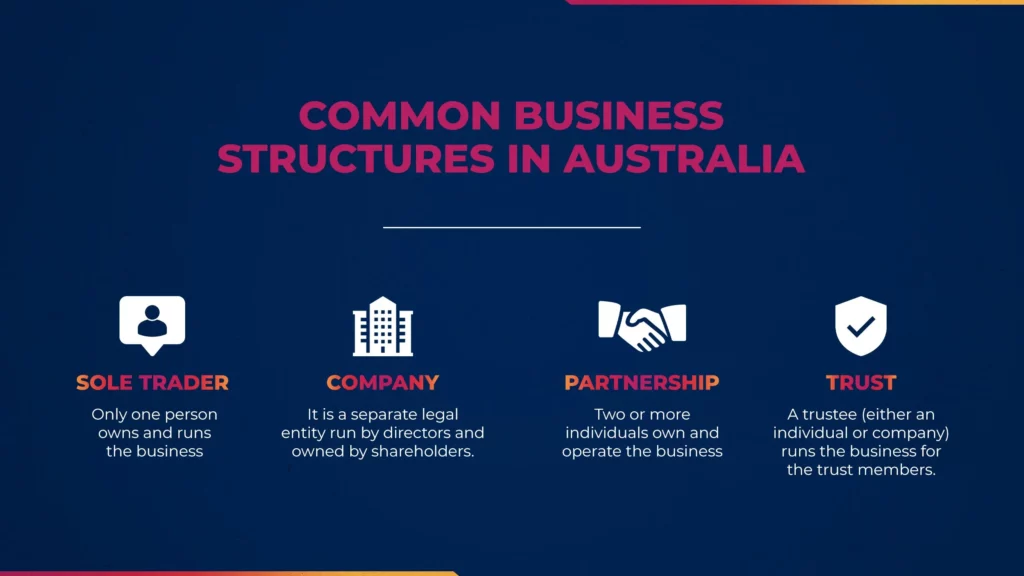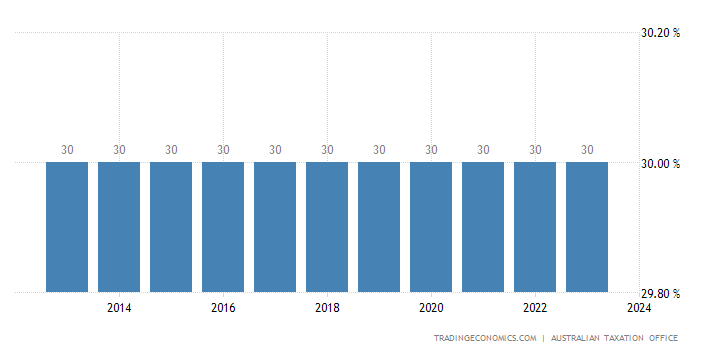Incentives for Businesses
Incentives for businesses in Australia include:
Tax credits and investment incentives
Grants and funding programs
R&D tax incentives
The Export Market Development Grant (EMDG)
These incentives can significantly reduce tax liability, provide financial support for research and development, capital investments, and other business activities, contributing to the growth and competitiveness of businesses in the Australian market.
In addition to these incentives, businesses can also benefit from the Australian Government’s Business Innovation and Investment
Social Security System
Businesses operating in Australia must be well-versed in the country’s social security system. The system offers a variety of benefits and services to those who qualify, including the Medicare levy and a retirement savings fund.
Employers are required to contribute to a retirement savings fund for their employees, in addition to the means-tested federal government Age Pension. High-income taxpayers are liable to face an additional 1-1,5% surcharge if they don’t have private health insurance. This applies to all who fall into the high-income bracket..
Understanding these aspects ensures that your business remains compliant and can effectively manage employee benefits.
Expanding Your Business in Australia
The expansion of your business in Australia encompasses key steps like trading across borders, securing a listing on the Australian Stock Exchange (ASX), and forging strategic partnerships. Taking these steps will ensure that your business is well-positioned for growth and success in the Australian market.
Trading Across Borders
Although logistic costs and inefficiencies can make international trade across Australian borders challenging, businesses can find opportunities to enhance their practices and digitalization. By leveraging digitalization to optimize costs and bolster efficiency in the logistics space, businesses can effectively navigate the challenges of trading across borders in Australia and capitalize on its strong trade connections with the Asia-Pacific region.
Listing on the Australian Stock Exchange (ASX)
Listing on the ASX provides global investors with access to a modern stock exchange with specific company disclosure and reporting requirements. By meeting the necessary admission criteria and obtaining approval from ASX, businesses can gain access to a wider pool of investors and enhance their visibility in the international market.
Building Strategic Partnerships
Forming strategic partnerships with local experts and organizations can aid businesses in navigating the Australian market and attaining success. By identifying potential partners, fostering relationships, and negotiating advantageous agreements, businesses can leverage the knowledge and expertise of local partners to overcome market challenges and capitalize on growth opportunities.
Visa Requirements for Doing Business in Australia
Doing business in Australia requires specific visas and documentation for skilled overseas employees and business owners. Employers may sponsor skilled employees from overseas under a Temporary Skill Shortage (TSS) visa, ensuring that they have access to the expertise needed to drive their business forward in the Australian market.
Alternative to Company Registration in Australia
In Australia, the concept of an Employer of Record (EOR) or Australia PEO is becoming a preferred alternative to the traditional method of company registration. Companies keen on entering the Australian market can leverage the EOR model to avoid the intricacies and prolonged procedures of establishing a local entity and easily hire employees in Australia.
Through an EOR, businesses can efficiently onboard Australian talent, handle payroll, and ensure complete adherence to the country’s employment laws and regulations. This approach circumvents the bureaucratic challenges associated with company registration in Australia, facilitating quicker market penetration. Thus, businesses can reduce administrative tasks and concentrate more intently on their expansion and core operational objectives.
Summary
In conclusion, doing business in Australia offers a wealth of opportunities for investors willing to navigate its diverse market, legal framework, and unique challenges. By understanding the key industries, establishing the right business structure, and building strategic partnerships, businesses can capitalize on Australia’s strong economic foundation and thrive in this dynamic environment. Are you ready to take your business to new heights in the land down under?
